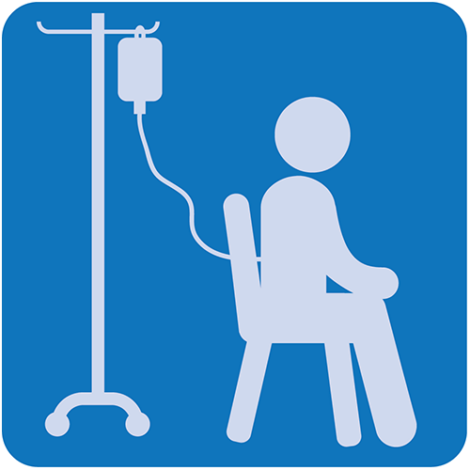
Chemotherapy is a cancer treatment where powerful medicines are used to kill cancer cells. There are many different types of chemotherapy medicine but they all work in a similar way. They stop cancer cells reproducing which in turn prevents them from growing and spreading in the body.
The most common way of giving this is through a vein into your body. It is known as intravenous, or IV chemotherapy. This is given in a hospital setting as a day case admission. Some chemotherapy can be taken in tablet form. This is called oral chemotherapy which can be taken at home. You may be treated with a combination of both IV and oral chemotherapy medicines.
Your respiratory team will have directly referred you to the doctors that offer chemotherapy; if this is the treatment you have been offered. They are called Medical Oncologists.
You will receive your treatment at The Meadows Unit at Eccleshill Community Hospital in Bradford. All appointments you have with your Oncologist and any treatment received will be administered at this unit.
You will be given contact numbers for the department. There is no charge to park at Eccleshill Community Hospital.
For more information on different types of chemotherapy, visit the Macmillan Charity website.
We have created this video guide below to help you better understand the treatment process:
You will also be given the number for the Acute Oncology Helpline. This is a telephone that is manned 24 hours a day, every day of the year where you should ring if you have any problems with side effects from treatment.
Your lung cancer nurse specialist team can answer any questions or concerns you have and help you to make any decisions you're unsure about. Please don't hesitate to contact them. These are the contact details you need:
You can contact us using the Relay UK app. Textphone users will need to dial 18001 ahead of the number to be contacted.
Bradford Teaching Hospitals NHS Foundation Trust is a smoke-free organisation. You are not permitted to smoke or in use e-cigarettes in any of the hospital buildings or grounds.